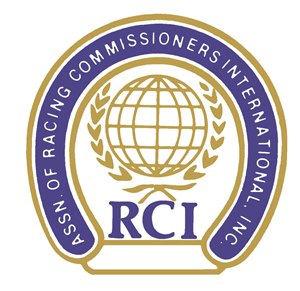ARCI Amends Several Model Rules at Recent Meeting


At its most recent meeting in Tucson, Ariz., the Association of Racing Commissioners International approved 10 amendments to the model rules and set aside final action on other pending matters needing further work.
The ARCI adopted tougher policies on nonsteroidal anti-inflammatory drugs and intra-articular joint injections and kept open the possibility for further limits on phenylbutazone based upon some indications that the newly adopted 48-hour restriction may not be consistent with current research yet to be provided to the Association.
The Association also approved dramatically increasing sanctions for violations considered to be "doping" and "equine endangerment," pending further work on regulatory definitions and rule drafting. The Drug Testing Standards and Practices committee was tasked to make final recommendations in time for the April 2020 meeting.
The ARCI board of directors approved the following model rule amendments:
- Amendment to ARCI-011-020 MEDICATIONS AND PROHIBITED SUBSTANCES (E) which prohibits the administration of Nonsteroidal Anti-Inflammatory medications to horses within 48 hours of a race
- Amendment to ARCI-011-020 MEDICATIONS AND PROHIBITED SUBSTANCES (F) wherein a horse is ineligible to race in a flat race for 14 days after an intra-articular joint injection
- Amendment to ARCI-010-030 HORSES INELIGIBLE (10) wherein any horse in flat or jump racing will be ineligible to race if it has received an intra-articular injection in the preceding 14 days and stacking is prohibited
- Amendment to ARCI-011-015 PROHIBITED PRACTICES by adding a new subsection prohibiting the use of bisphosphonates in any horse younger than 4. The bisphosphonates must be FDA-approved, administered according to instructions, and only used to treat navicular disease
- Amendment to ARCI-011-020 MEDICATIONS AND PROHIBITED SUBSTANCES (B) by dramatically increasing penalties considered to be violations in "doping" and "equine endangerment"
- Amendment to ARCI-010-020 WEIGHTS by altering weight allowances for jockeys riding 3-year-olds facing older horses and for 3-year-old horses facing older horses
- Amendment to ARCI-011-015 PROHIBITED PRACTICES (6C), by adding subsection (D) outlining under which circumstances other than laboratory testing a horse's blood can be drawn and by adding subsection (F) prohibiting chemical or immunocastration
- Amendment to ARCI-004-024 (K) PARI-MUTUEL WAGERING by adding language to address wagering opportunities in races with three or more horses
A proposed amendment to ARCI-010-035 RUNNING OF THE RACE-USE OF THE RIDING CROP (E) was referred to the Rider and Driver Safety Committee to be considered along with alternative proposals being submitted.
The ARCI also added several substances to its Uniform Classification Guidelines for Foreign Substances and made a technical correction to its bylaws to clarify that automatic seats on its board of directors are to be based on the number of live horse racing days being regulated.
The updated version of the model rules and all associated schedule updates will be formally published by Jan. 1. Information concerning the items considered—but not necessarily adopted in final form—can be downloaded at www.arcimodelrules.online.
The ARCI model rules form the foundation of the racing regulatory scheme in most jurisdictions. In some cases, the regulatory authorities or jurisdictions have, in the interest of uniformity, formally required adherence to the ARCI model rule standards affecting various subject matters.
The ARCI is a member of the International Federation of Horse Racing Authorities and is an active participant in the development of international standards.
